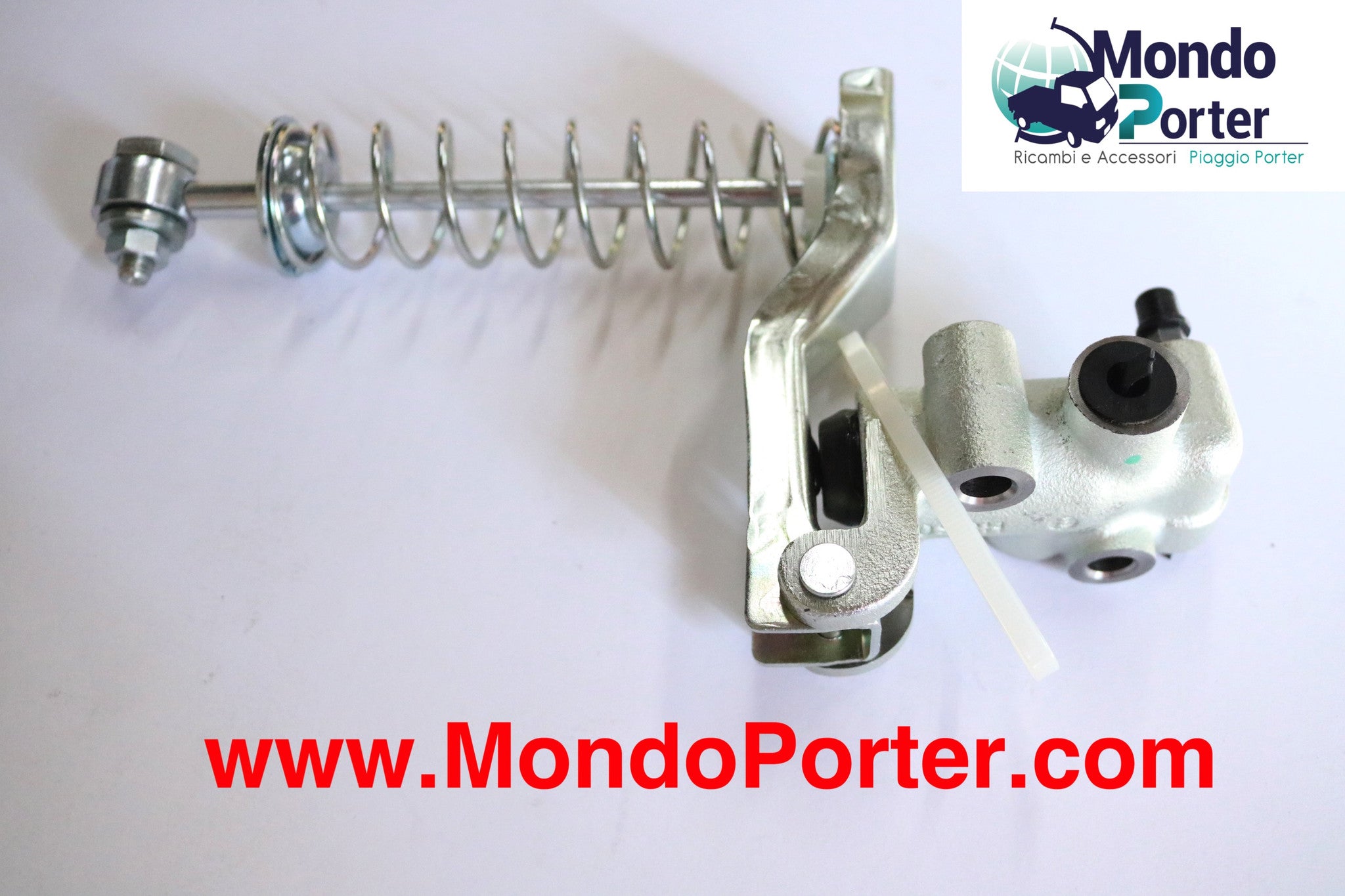Let's see together the Technical Sheet of the Piaggio Porter Brake Corrector
confirm Characteristics and Settings
What is the braking corrector? What is it for? How does it work ?
The LSPV (pressure regulator/braking corrector) regulates the hydraulic pressure of the proportional valve according to the weight applied to the rear axle of the vehicle.

-
LEGEND:
1. Lateral cross member
2. Rear axle
A = During light load operation
A' = During operation with normal load
Pm = High hydraulic pressure of the rear main cylinder Pr = Hydraulic pressure of the rear wheel cylinder
Description

LEGEND:
1. Seal ring
2. O-rings
3. Lid
4. Cap
5. Stop
6. Spring
7. Piston
8. Metal sealing gasket
9. O-Rings
Pm = Main cylinder hydraulic pressure Pf = Front brake hydraulic pressure
S = SPG Push Force
A2 = Large diameter piston section Pr = Rear brake hydraulic pressure
F = Thrust force of the piston
A1 = Small diameter section of piston A3 = Small diameter section of piston
Adjustments and Pressures

LEGEND:
PM = Main cylinder hydraulic pressure
PR = Rear brake hydraulic pressure
W = WHEN the front brake works Male
K = WHEN SPG Sensor Is Broken
1. PM < PF
PM Master Cylinder Pressure BEGINS TO Rise. One point, however, is that there is still a gap between the main section of piston A2 , and the metal seal. Therefore the pressure of the master cylinder PM IS transmitted to the rear brake PR .
PM = PR
2. PM = Pc
WHEN the main cylinder Pressure PM reaches the Pressure PC at the turning point, the piston Moves to the Right of the above figure A cause of force balance. As a result the piston COMES a chat chat contact with the metal seal.
PM x A1 = F + S
3. PM > PC
If the pressure of the main cylinder PM sale Beyond the PT the metal gasket OPENS and CLOSES. Consequently, the rear brake pressure is sold according to the ratio of the sectional area of the piston.
1- [A1 / (A2-A3)]
Pr = Pm [1- (A1 / (A2-A3))] + (S + F) / (A2-A3)

